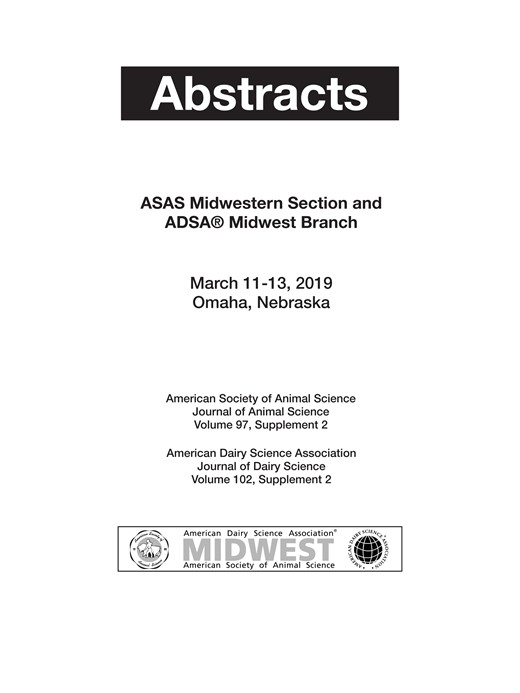-
Views
-
Cite
Cite
Sue Sinn, Ran Song, Dana Beckler, Rob Musser, Kim Friesen, 150 A bio-active, mineral-based feed additive improved growth performance and reduced severity of diarrhea in weanling pigs challenged with enterotoxigenic Escherichia coli, Journal of Animal Science, Volume 97, Issue Supplement_2, July 2019, Pages 84–85, https://doi.org/10.1093/jas/skz122.154
Close - Share Icon Share
Abstract
A mineral-based feed additive, NutriQuest Protect™, was evaluated in five artificial Enterotoxigenic Escherichia coli (ETEC) challenge experiments to determine the effects on pig growth performance, fecal consistency and immune response. The five experiments were conducted following a similar procedure and utilized a total of 232 weanling pigs (19 d of age) assigned to one of three experimental treatments: non-challenged control (NC), challenged control (CC), and challenged pigs fed Protect at 4.0 g/kg (CP) with 36, 36, and 44 pens per treatment, respectively. Pharmacological ZnO or medications were not included in any diets. Pigs were allowed a 7-d adaptation period following weaning, orally inoculated with E. coli K88 or F18 on 0 d post-inoculation (dpi) and 1-dpi. Studies were concluded on 4-dpi. Pig BW and feed disappearance were measured on 0-dpi and 4-dpi. Serum samples were collected on 0 and 4-dpi to measure porcine proinflammatory cytokines. Fecal scores were measured daily over the challenge period. Data from the five experiments were compiled for meta-analysis using the MIXED procedure of SAS. The NC pigs had a greater ADG (0.09 vs. -0.01 kg/d, P = 0.002), ADFI (0.24 vs. 0.21 kg/d, P = 0.09), and final BW (6.8 vs. 6.5 kg, P < 0.05). Diarrhea frequency was significantly higher in CC pigs compared with pigs on CP and NC treatments (28.5 vs. 18.7 vs. 5.3%, P < 0.05). Results from the five experiments suggest that NutriQuest Protect™ improves growth performance and reduces inflammation and diarrhea in weaned pigs artificially challenged with E. coli K88 or F18.





